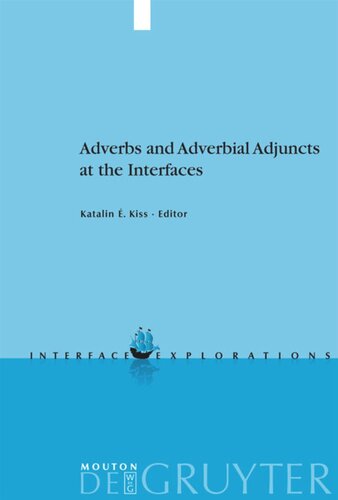

Most ebook files are in PDF format, so you can easily read them using various software such as Foxit Reader or directly on the Google Chrome browser.
Some ebook files are released by publishers in other formats such as .awz, .mobi, .epub, .fb2, etc. You may need to install specific software to read these formats on mobile/PC, such as Calibre.
Please read the tutorial at this link: https://ebookbell.com/faq
We offer FREE conversion to the popular formats you request; however, this may take some time. Therefore, right after payment, please email us, and we will try to provide the service as quickly as possible.
For some exceptional file formats or broken links (if any), please refrain from opening any disputes. Instead, email us first, and we will try to assist within a maximum of 6 hours.
EbookBell Team

0.0
0 reviewsThis book clarifies - on the basis of mainly Hungarian data - basic issues concerning the category ‘adverb,’ the function ‘adverbial,’ and the grammar of adverbial modification. It argues for the PP analysis of adverbials, and claims that they enter the derivation via left- and right-adjunction. Their merge-in position is determined by the interplay of syntactic, semantic, and prosodic factors. The semantically motivated constraints discussed also include a type restriction affecting adverbials semantically incorporated into the verbal predicate, an obligatory focus position for scalar adverbs representing negative values of bidirectional scales, cooccurrence restrictions between verbs and adverbials involving incompatible subevents, etc. The order and interpretation of adverbials in the postverbal domain is shown to be affected by such phonologically motivated constraints as the Law of Growing Constituents, and by intonation phrase restructuring. The shape of the light-headed chain arising in the course of locative PP incorporation is determined by morpho-phonological requirements. The types of adverbs and adverbials analyzed include locatives, temporals, comitatives, epistemic adverbs, adverbs of degree, manner, counting, and frequency, quantificational adverbs, and adverbial participles.